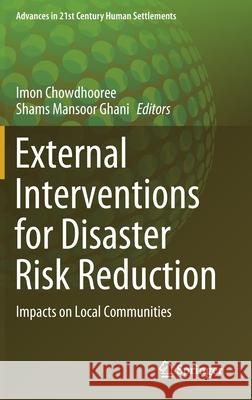External Interventions for Disaster Risk Reduction: Impacts on Local Communities » książka
topmenu
External Interventions for Disaster Risk Reduction: Impacts on Local Communities
ISBN-13: 9789811549472 / Angielski / Twarda / 2020 / 296 str.
External Interventions for Disaster Risk Reduction: Impacts on Local Communities
ISBN-13: 9789811549472 / Angielski / Twarda / 2020 / 296 str.
cena 523,30
(netto: 498,38 VAT: 5%)
Najniższa cena z 30 dni: 501,19
(netto: 498,38 VAT: 5%)
Najniższa cena z 30 dni: 501,19
Termin realizacji zamówienia:
ok. 22 dni roboczych.
ok. 22 dni roboczych.
Darmowa dostawa!
Kategorie BISAC:
Wydawca:
Springer
Seria wydawnicza:
Język:
Angielski
ISBN-13:
9789811549472
Rok wydania:
2020
Wydanie:
2020
Numer serii:
000772098
Ilość stron:
296
Waga:
0.62 kg
Wymiary:
23.39 x 15.6 x 1.91
Oprawa:
Twarda
Wolumenów:
01
Dodatkowe informacje:
Wydanie ilustrowane











